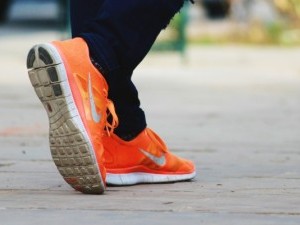AAFA’s top counterfeiting countries
China is top of mind for the AAFA’s counterfeiting concerns, even as communication between the Chinese government and U.S. footwear and apparel players has improved in the last year. Even so, “we continue to see a growth in the number of products and brands that are being counterfeited,” said a recent AAFA report.
Other countries that top the AAFA’s list include Mexico, the Philippines, Russia, Thailand, Turkey, and Saudi Arabia.
Communications aside, the AAFA is also concerned that draft e-commerce legislation pending in China may actually create less legal accountability and responsibility for offending online platforms. Trademark protection in China is also sketchy. If a bogus party files an application in China before the real owner, the legitimate brand owner is left out in the cold.
“We believe the U.S. Government should work with Chinese Customs to prevent fake goods from leaving China,” said the AAFA report.
Counterfeit goods remain prevalent in Mexico, where trademark registration is a difficult process. The Mexican customs authorities have stepped up, conducting several successful raids and seizures in recent years. AAFA members are concerned, however, that cooperation is inconsistent.
The government of the Philippines have also conducted successful raid actions against counterfeit goods traffickers in the past two years. But the main problem lies with the courts, “where all cases languish and solid cases are dismissed for no clear legal reasons,” according to the AAFA report. Aggrieved companies in the Philippines must pay for the storage fees for goods seized and to fund the work of prosecutors, all of which increases the costs of enforcement and decreases incentives for companies to conduct raids and enforce their trademarks.
Russian law enforcement provides “absolutely no support” to AAFA members when it comes to the protection and enforcement of their patents, trademarks, and copyrights. “Online piracy also continues to plague the Russian market,” the report said, “and the government has failed to establish any sort of effective enforcement strategy to address the problem.”
Turkey remains a European-Asian hub for the manufacture, export, and transshipment of footwear and apparel counterfeits. AAFA members reported sporadic support from Turkish law enforcement in raids and seizures in the past few years but the judicial system remains “inefficient and slow, with judicial remedies that do nothing to deter counterfeiters.”
AAFA says “severe infringements and erosion of brand identity” is taking place in Saudi Arabia, with enforcement remedies costly and difficult and companies targeted in raids being allowed to continue to sell infringing products. There are also problems with the court system and there is no system for trademark registration with Saudi Customs. But some AAFA members have reported that Saudi authorities have been helpful in identifying and detaining suspected counterfeits and knockoffs.
Also on the brighter side, Thailand has seen continued improvements in recent years. Support from the Royal Thai Police and Royal Thai Customs in intellectual property enforcement cases has increased. But AAFA has issues with how Thai trademark authorities examine potentially offending trademarks, resulting “in the registration of many trademarks likely to create consumer confusion.”
© Copyright 1999–2024 American Journal of Transportation. All Rights Reserved


